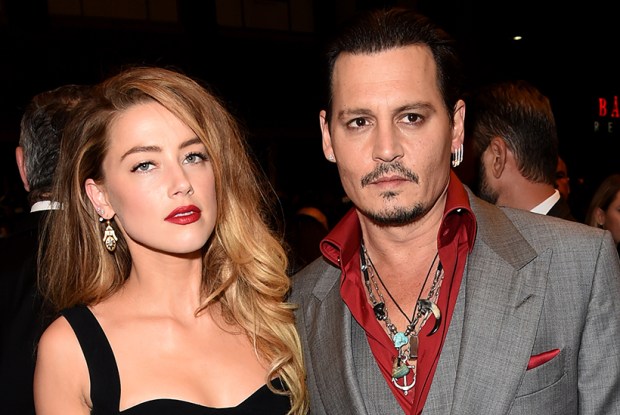Another stabbing in my new neighbourhood, not with an axe or with a samurai sword this time, but a machete. The samurai sword incident was back in the spring. The magnolia was in bloom and the citizens of London N1 were about their innocent business, reading for book club and baking (wheat-free). At 3 p.m., a terrible screaming was heard coming from Englefield Road and when police arrived they found a teenage boy lying bleeding, sword on one side, meat cleaver on the other.
The machete killing which followed was worse. Daylight, but this time the crime scene was a playground. Children were goofing about after school, including the soon-to-be victim’s sister. Witnesses said two teenagers appeared on a scooter. The driver allegedly said to his passenger: ‘That boy in blue, get him,’ and so he did. He ran over to 18-year-old Stefan Appleton, raised a machete and stabbed him repeatedly in the chest.
When I cycled past the playground that evening, the now-familiar yellow crime-scene tape was bagging gently in the breeze; the familiar fat and anxious young officer standing by. So I said, (though I already knew), ‘What happened?’ He said: ‘Oh, not to worry, madam. Just a gang killing.’
Not to worry, just a gang killing. As knife crime rises across the capital, this has become the mantra of London’s middle class. Back in May, new to N1, I assumed that a grisly stabbing in the hood would be the subject of horrified and excited talk. Far from it. ‘Stabbing? Oh… that, it’s just gangs.’ said most of my neighbours. ‘Have you tried the new deli?’ The more brutal the murder, the more studiedly casual the response. A hand sliced off on Upper Street? ‘Not to worry.’ Death by ice-pick in the next street? ‘Kids, eh?’
As the summer wore on, measured out in axe attacks, I began to understand the phenomenon better. The two dominant communities of N1 are council tenants, living mostly on estates, and homeowners, in their early Victorian terraces. Like other London boroughs, the area has gentrified at speed, filled with refugees from Marylebone and Notting Hill, and these two groups are so utterly opposed in both income and habits that they have evolved a kind of selective blindness. Same shops, same streets, but it’s as if they exist in suspension, like oil and water, unmixed. There’s no middle group to bridge the gap, no shared habits or institutions, save perhaps the Church.
I can see how this strange apartheid began and even why it persists despite the murders. When you’ve spent a million or more on a family home and crooned over its cornices, it’s easier to ignore the fact that children are being hacked to death outside. When you’ve told your neighbours, and they’ve told you, that this is the nicest part of London, a brilliant find, it seems better not to mention that it’s also a hotspot for homicide.
Perhaps there are also political reasons for the wilful blindness. The N1 homeowner thinks of himself as caring. He’s sensitive, Left-leaning and inevitably hostile to police stop-and-search on the grounds that it’s racist. N1 man was right behind Nick Clegg when he kiboshed the plan to crack down on kids carrying knifes. He opposed ‘two strikes and you’re out’, meaning that kids caught twice with knives go to jail. The N1 objection echoed Clegg: ‘It’ll demonise youngsters and destroy lives.’ Cracking down on knife crime goes against the Islington grain. It cannot be a coincidence that, as the police eased off on stop-and-search, so knife crime in the capital took off and the knives became swords and meat cleavers and serrated scimitars.
What about the lives of the boys who’ve been stabbed? So far, they don’t seem to feature. For all the youngsters injured or killed in London, by far the loudest outcry is still over Henry Hicks. Hicks was a white lad, often stopped by the police for driving his scooter dangerously. He crashed and died in a police chase late last year and oh, how Islington has been up in arms. There’s graffiti all over north London: Justice for Henry Hicks, a memorial mural and now an official inquiry into his death, which shows how much influence an outcry can have.
So where’s the outcry over all the boys hacked to death? I suppose it’s just not as fun when you can’t blame the police. The perps and the victims of most gang-related knife crime in my area are black — so there’s no fashionable outrage to enjoy, just the murky sense of an unknown and disturbing world.
But the two N1 communities are linked, whether they like it or not. The extreme indifference of the middle classes isn’t just amoral, it’s a cause of crime, too.
Because the homeowners and the tax-payers haven’t cared, because (until this month) the stats stayed silent, the police focus in N1 has been cyclists. There they’ve stood all year, the Met, at crossroads in the Angel area, fining bankers who jumped the lights while life on the estates went to pot.
To be fair, things changed in mid-July. The Commissioner announced what we’d known for months: that knife crime was on the rise and suddenly the ‘two strikes’ policy was back. When I turned down my street last week, there was a very different sort of police officer in evidence: lean, serious-looking and tough, no pot bellies or sideburns. They had stopped and were frisking a couple of teenage boys in a friendly but determined way, and my reaction to their presence was relief, both for myself and for the boys of the estates.
How will N1 react? Will they accept, after the meat cleavers and swords, that stop-and-search might be necessary? I’ve already heard some talk of discrimination and of ‘two strikes’ blighting young lives, but what I’d like them to consider is this: what would Mrs Appleton think? Stefan’s mother, the mother of the kid killed in the playground back in June, don’t you think she might have welcomed a tougher approach to carrying machetes in the street?
This article mentions in passing Henry Hicks, who died late last year in a scooter accident. In it, I originally referred to Henry as ‘thuggish’, which in retrospect was unsubstantiated. My apologies to Henry’s family.
Got something to add? Join the discussion and comment below.
Get 10 issues for just $10
Subscribe to The Spectator Australia today for the next 10 magazine issues, plus full online access, for just $10.
You might disagree with half of it, but you’ll enjoy reading all of it. Try your first month for free, then just $2 a week for the remainder of your first year.















Comments
Don't miss out
Join the conversation with other Spectator Australia readers. Subscribe to leave a comment.
SUBSCRIBEAlready a subscriber? Log in